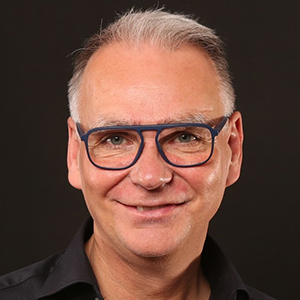
Christof Loose
Christof Loose, PhD., Clinical Psychologist, Psychotherapist for Children and Adolescents (CBT), works in his own Private Practice, affiliated with the Heinrich-Heine-University, Department Clinical Psychology, Germany (2012-2017), Chair CA committee: 2013-2017, and since 2023, editor/author of ST-CA books and Video-Learning (DVD).
Towards Resilience in ST-CA: How to empower the Clever-Wise mode in Children and Young Adults in inpatient and outpatient treatment
Co-Presented with Ursula Neumann
Schema Therapy has become a hot topic within Cognitive Behavioural Therapy (CBT) and the world of Psychotherapy in general. Method. In the following Pre-Conference Workshop, we would like to extend the meaning of “Schema Therapy” to a level from where we can strengthen and foster the acquisition of positive attitudes, functional modes and positive schemas in inpatient as well as outpatient treatment. As an example we will present the inpatient schema-/modebased therapy in a 16-year-old adolescent with school absenteeism and demonstrate how positive-based schema therapeutic techniques can be adapted to the specific needs of school avoiding patients with internalizing symptoms. Goal. The goal is to reinforce the client’s/patient‘s positive experiences, e.g. by supporting them to get in touch with their strengths (Clever-Wise mode) and to connect them (internally) with significant others in their lives (e.g. helpful peers, parental caregivers, and significant others). Conclusion. Beside the basic steps within this positive Schema Therapy approach, the workshop offers many practical demonstrations through picture and video material or life demonstrations, and small exercises allow the participants to transfer the content into their own practice.
Schema Therapy for Children and Young Adults with Autism Spectrum Disorder (ASD)
Co-Presented with Claus Lechmann
Background.In previous treatment approaches for young people with autism spectrum disorder (ASD), the disorder-specific emotional needs, schemas, modes and coping strategies play no or a subordinate role. Schema therapy for this group of clients is relatively new, and therefore requires a more differentiated perpective and extension to the usual practice within Schema Therapy.
Method/Goal.
In this Skills Class, typical schemas and modes in clients with ASD will be elaborated and a ASD-specific mode concept will be introduced. Typical hurdles within the ASD-specific treatment will be described, classified and solution paths will be discussed. For parents and other caregivers, schema therapy provides two starting points. On the one hand, the mode model offers a new framework for an understanding of ASD-specific problems including socio-emotional issues. On the other hand, the clients typical behavioural patterns can be better understood, classified, and, if necessary, modified in an appropriate, individual way. Finally, typical mode clashes between parental caregivers and ASD clients are discussed, completed by guidelines to support parents in strengthening their caring-and-guidance mode (Healthy Adult). This ASD-specific approach is highlighted by the dynamic interplay between warm and nurturing parenting on one side, and empathic confrontation on the other side.
Conclusion.
The schema therapeutic treatment of ASD clients requires a special consideration of the disorder-specific particular needs, accompanied by a mode- and schema-based treatment within CBT protocols that is supported by the system in which the client lives (e.g. family).

